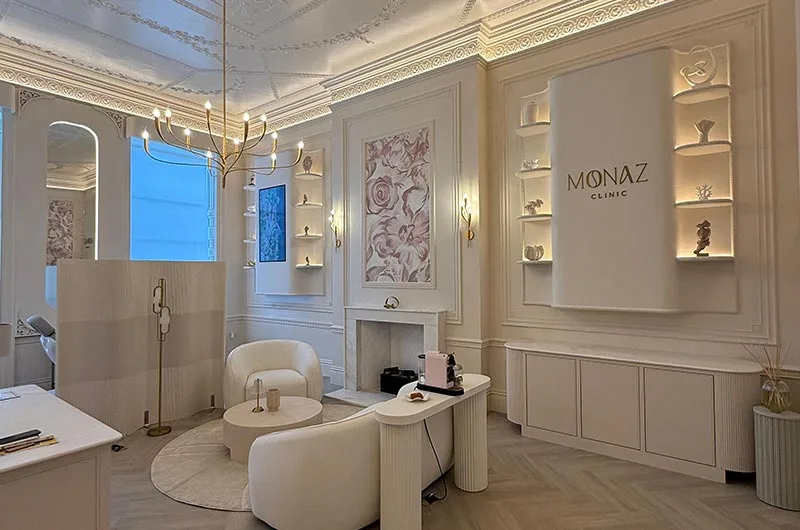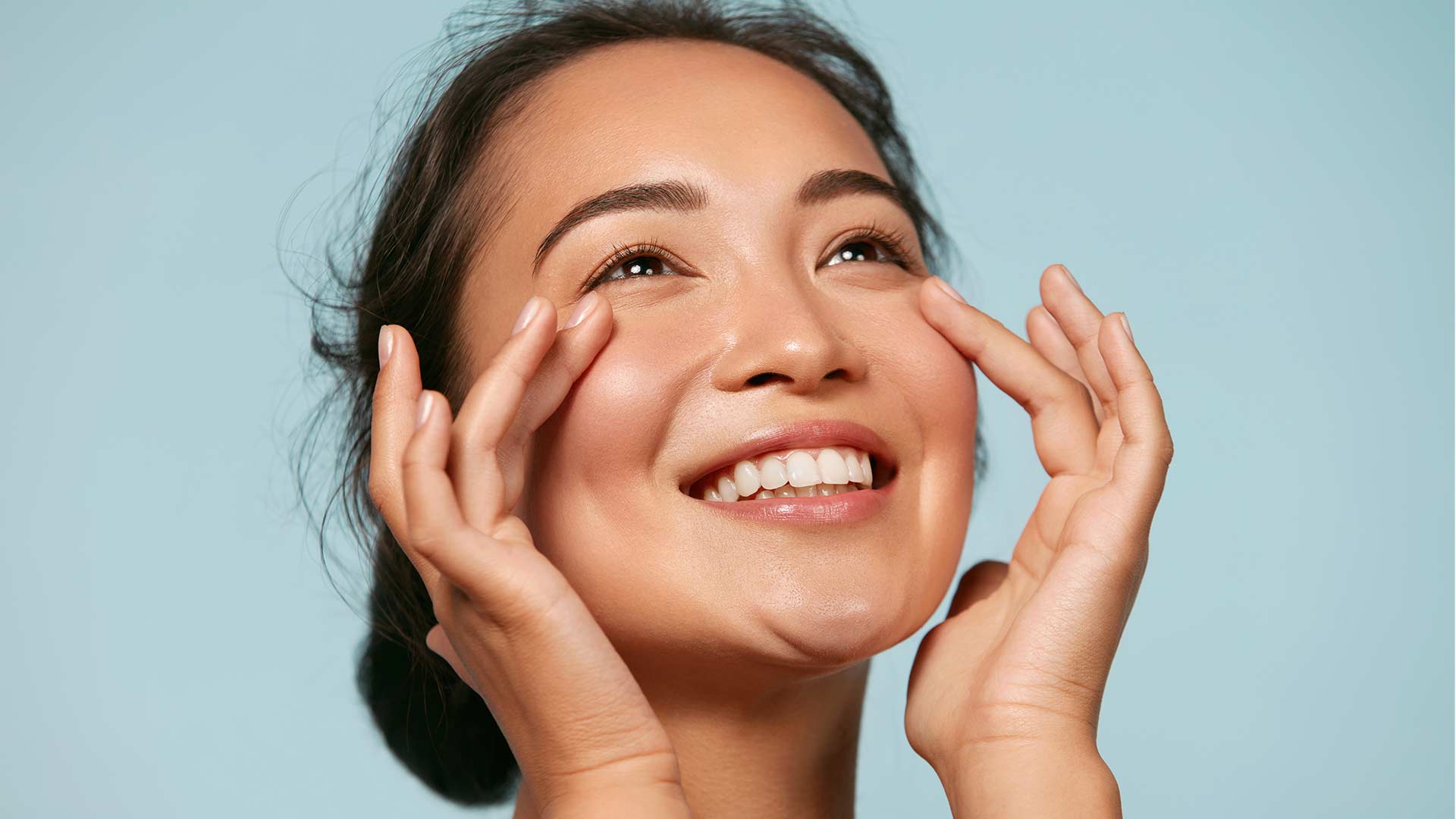In our fast-paced world, sleep often takes a backseat to busy schedules and endless to-do lists. However, getting adequate rest is not just crucial for your overall health—it plays a significant role in the condition and appearance of your skin. Let’s explore how sleep impacts your skin and share tips to maximise its rejuvenating benefits.
The Connection Between Sleep and Skin
- Repair and Regeneration: During sleep, your body goes into repair mode, producing new collagen and repairing damage from UV exposure and pollution.
- Hormonal Balance: Sleep regulates hormones like cortisol and growth hormone, affecting skin thickness, elasticity, and hydration.
- Blood Flow Increase: Enhanced circulation during sleep delivers nutrients and oxygen to skin cells, promoting a healthy complexion.
Effects of Sleep Deprivation on Skin
- Accelerated Ageing: Lack of sleep leads to increased cortisol levels, breaking down collagen and leading to wrinkles and sagging.
- Dull Complexion: Poor sleep reduces blood flow, resulting in a lacklustre appearance.
- Dark Circles and Puffiness: Fluid buildup under the eyes and dilated blood vessels cause under-eye bags and shadows.
- Acne Flare-Ups: Stress hormones can trigger or worsen acne.
Tips for Beauty Sleep
1. Aim for 7-9 Hours of Quality Sleep
- Tip: Establish a regular sleep schedule by going to bed and waking up at the same time daily, even on weekends.
2. Create a Sleep-Friendly Environment
- Darkness: Use blackout curtains or a sleep mask to block out light.
- Quiet: Consider earplugs or a white noise machine if you’re sensitive to noise.
- Comfort: Invest in a supportive mattress and comfortable bedding.
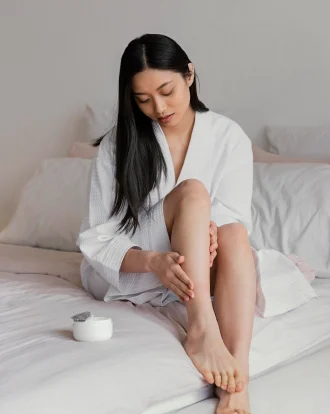
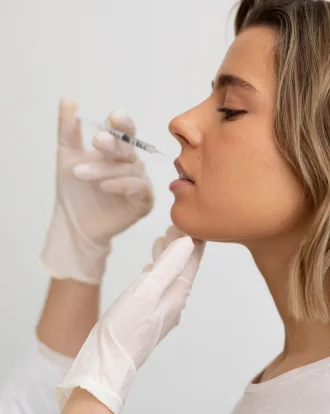
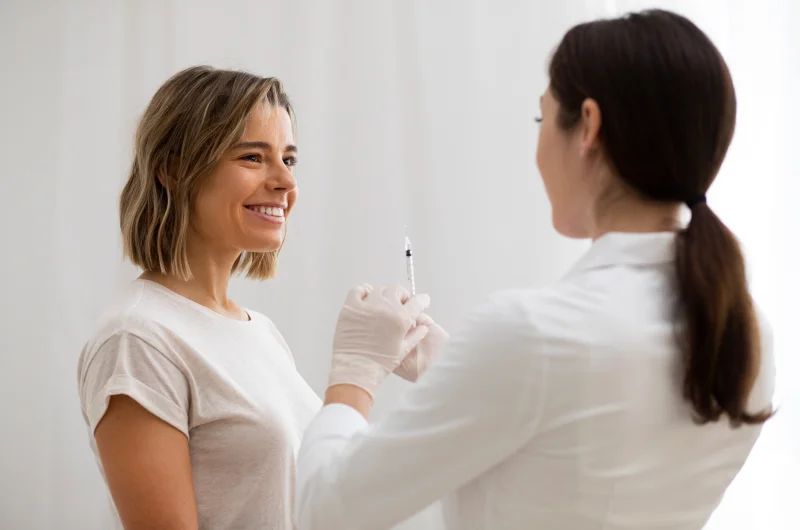
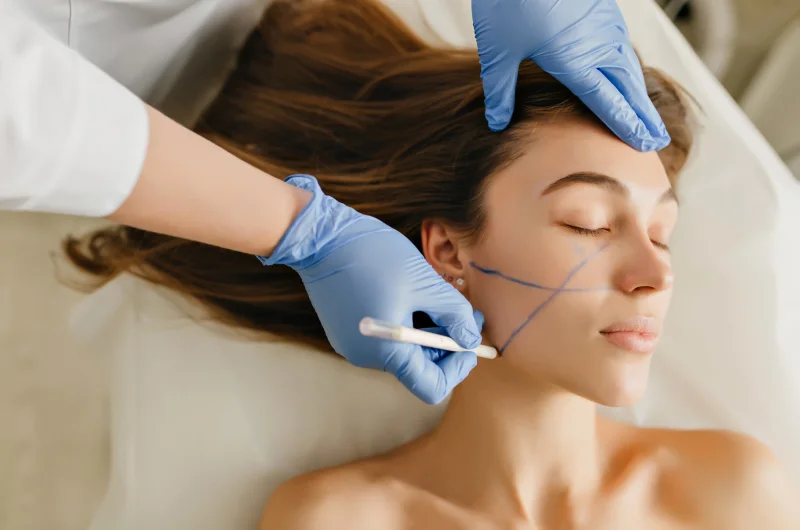
3. Establish a Relaxing Bedtime Routine
- Unplug: Avoid screens at least an hour before bed to reduce blue light exposure.
- Wind Down: Engage in calming activities like reading, gentle stretching, or taking a warm bath.
- Aromatherapy: Use essential oils like lavender to promote relaxation.
4. Mind Your Evening Diet
- Avoid Stimulants: Limit caffeine and nicotine intake in the afternoon and evening.
- Light Snacks: If you’re hungry before bed, opt for sleep-promoting foods like almonds, kiwi, or chamomile tea.
5. Sleep on Your Back
- Tip: Sleeping on your back reduces pressure on your face, minimising wrinkles and puffiness.
- Pillowcase Matters: Use silk or satin pillowcases to reduce friction and prevent skin creases.
6. Nighttime Skincare Routine
- Cleanse Thoroughly: Remove makeup and impurities to allow your skin to breathe and regenerate.
- Hydrate: Apply a nourishing night cream or serum with ingredients like hyaluronic acid or retinol.
- Eye Care: Use an eye cream to hydrate the delicate under-eye area.
7. Manage Stress
- Tip: Practice mindfulness, meditation, or deep-breathing exercises to reduce stress levels that can interfere with sleep.
Conclusion
Prioritising sleep is one of the most effective and natural ways to enhance your skin’s health and appearance. By adopting healthy sleep habits and integrating them into your lifestyle, you’ll not only feel more energized but also wake up to a more radiant complexion. Remember, beauty sleep isn’t just a saying—it’s a vital component of your skincare routine.

